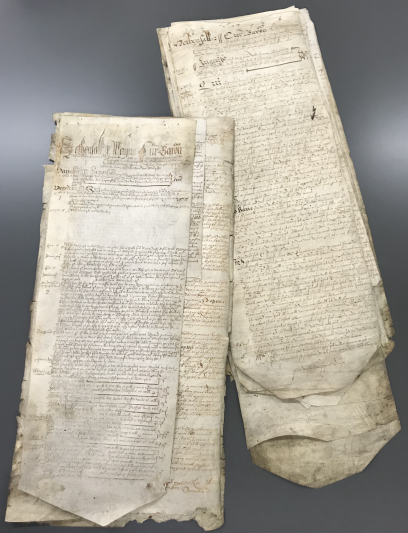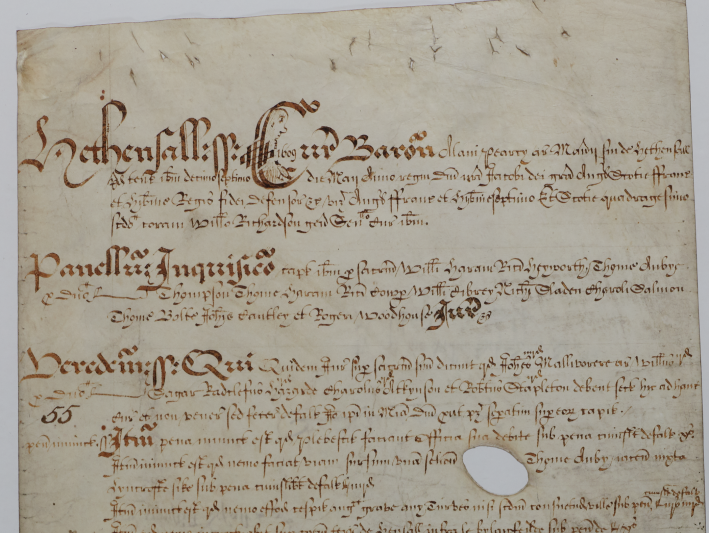Margaret Boustead, Head of Archives and Records Management writes: Thanks to generous support from the Friends of the National Libraries, North Yorkshire County Record Office was able to secure at auction a series of early 17th century court rolls for the manor of Hensall.
Hensall is a village lying at the very extremity of North Yorkshire, approximately eight miles from Selby, and south of the River Aire. Although not a separate ecclesiastical parish until 1855 and created a civil parish only in1866, it can trace its roots back to the Domesday Book in which it is named as Edeshale.
The manuscripts consist of two rolls written in Latin: one of 16 stitched vellum membranes and the other of 5 stitched vellum membranes, each measuring 60 to 80 cm in length and 28 cm wide. The larger roll comprises the record of 47 courts held between the years 1600 and 1623, with four further courts for 1626, 1633, 1635 and 1639 on the smaller roll.
The rolls give a fascinating insight into the structure of land holdings in the manor. They include records of land transactions and references to the old manorial strip system of farming. A bounder of the lordship is recited in 1601 and a valuable manorial survey is included in the 1626 roll, naming the tenants of the manor, and giving details of their lands and the rents due to the Lord. Repeated references to woodland indicate its importance to the local economy with heavy fines issued for any despoliation.
Family relationships are revealed through the land transactions. Heirs are named and occasionally, when a person is under 21, their age is given. The status of major tenants, such as the Haram family, soon becomes clear. In some cases, the rolls record something akin to a family settlement. In one interesting entry of 1618, a property is to pass on death to the testator’s brother and nephew with the unusual condition that the brother is to administer charitable payments of 40 shillings to the poor people of Snaith, Cowick, Hethensall (Hensall) and Whitley, for a period of years.
We are also given a rare glimpse into the daily life of the manor. Tenants are fined for offences including not ringing their pigs, not fencing their lands, uprooting woodland, using other men’s strips as rights of way and overstocking the common. There were clearly many disputes between the Lord of the Manor and one Charles Salmon, whose offences included cutting the Lord’s woodland and digging up the dividing baulks, but the outcome was perhaps inevitable. Salmon’s lands were seized and he was forced to pay a heavy fine and to make a public apology at Court before they were returned to him.
Digital copies of the court rolls will also be made available for study at the Yorkshire Archaeological and Historical Society, which also made a generous contribution to the purchase.

